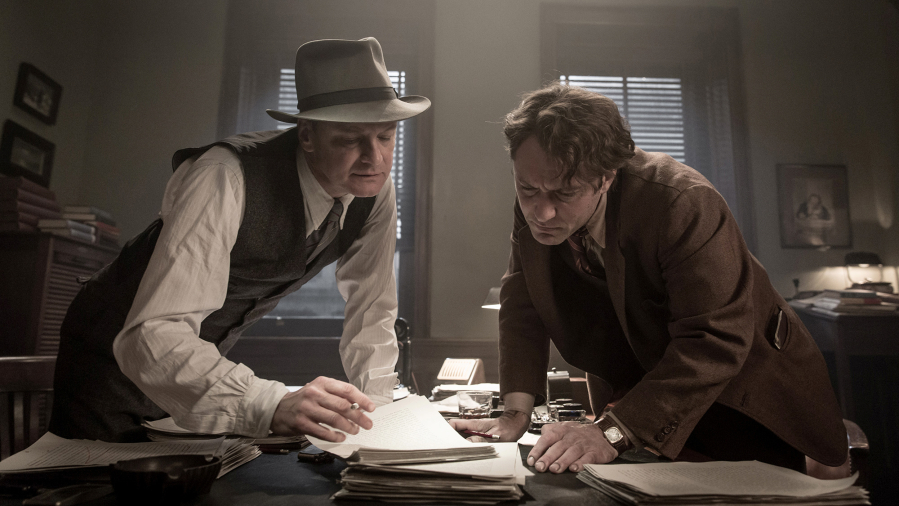Making movies about writers is treacherous business: There’s next to nothing cinematic about someone tapping away on a keyboard, then staring into the distance to think. And it’s just as disastrous when an ambitious filmmaker tries to liven things up by confecting a dramatic piece of business to demonstrate the writer’s plight, the most ludicrous example being Jane Fonda’s Lillian Hellman throwing her typewriter out a window in a bout of writerly pique.
“Genius,” Michael Grandage’s stalwart if staid biopic about literary editor Maxwell Perkins and author Thomas Wolfe, largely sidesteps the Scylla and Charybdis of inertia and burlesque through which any film about an artist must pass. Anchored by a quietly sympathetic performance by Colin Firth — the most reliable actor on the planet when it comes to personifying diffidence and moral rectitude — this attractive, ultimately affecting portrait of friendship and creative collaboration may lack the dynamism and fire of the work it celebrates, but it provides an absorbing account of a relationship that, although obscure to most viewers, radically reshaped the American literary landscape of the 20th century.
Based on A. Scott Berg’s 1978 biography of Perkins, “Genius” begins in 1929, when the editor was working at Scribner’s, where he had already discovered F. Scott Fitzgerald and Ernest Hemingway. As the movie opens, Perkins is quickly and ruthlessly crossing out sentences in red pencil when an associate dumps a 1,100-page manuscript on his desk.
Perkins begins to read and, in the graceful montage that ensues, keeps reading, through his commute home to Connecticut, through greeting his wife, Louise (Laura Linney), and five daughters, and practically through dinner, during which he forgets to take off his hat.



